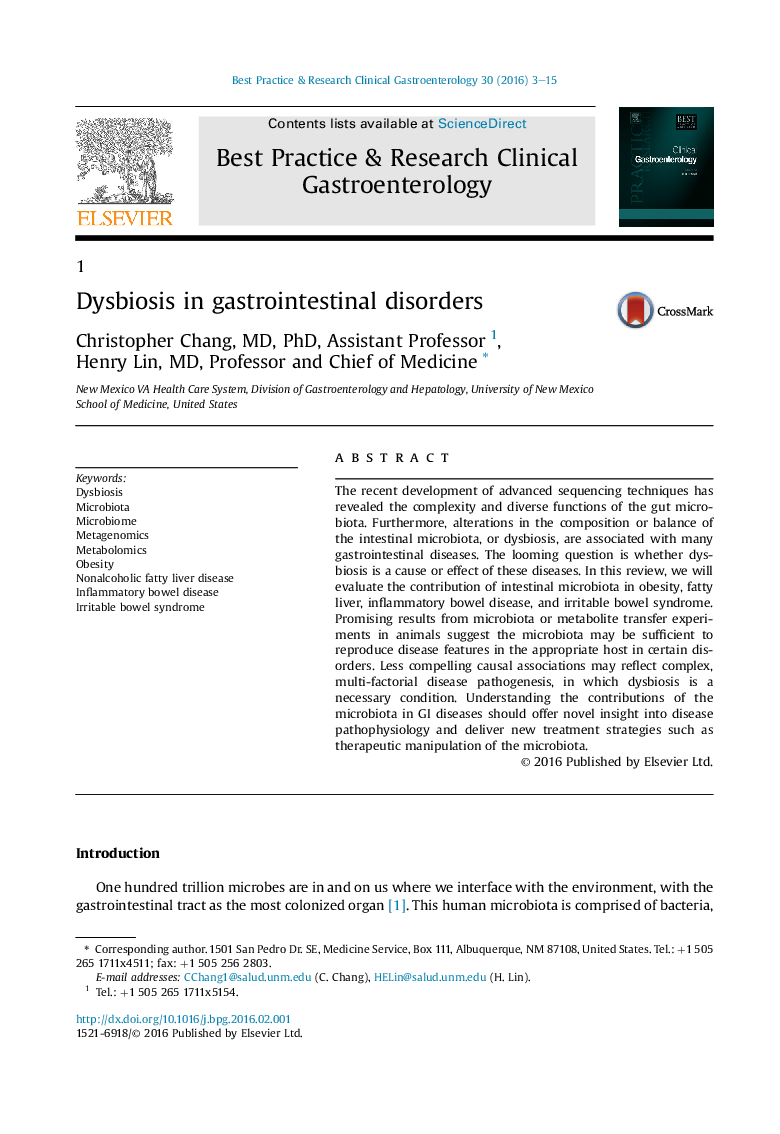| Article ID | Journal | Published Year | Pages | File Type |
|---|---|---|---|---|
| 3253997 | Best Practice & Research Clinical Gastroenterology | 2016 | 13 Pages |
The recent development of advanced sequencing techniques has revealed the complexity and diverse functions of the gut microbiota. Furthermore, alterations in the composition or balance of the intestinal microbiota, or dysbiosis, are associated with many gastrointestinal diseases. The looming question is whether dysbiosis is a cause or effect of these diseases. In this review, we will evaluate the contribution of intestinal microbiota in obesity, fatty liver, inflammatory bowel disease, and irritable bowel syndrome. Promising results from microbiota or metabolite transfer experiments in animals suggest the microbiota may be sufficient to reproduce disease features in the appropriate host in certain disorders. Less compelling causal associations may reflect complex, multi-factorial disease pathogenesis, in which dysbiosis is a necessary condition. Understanding the contributions of the microbiota in GI diseases should offer novel insight into disease pathophysiology and deliver new treatment strategies such as therapeutic manipulation of the microbiota.
